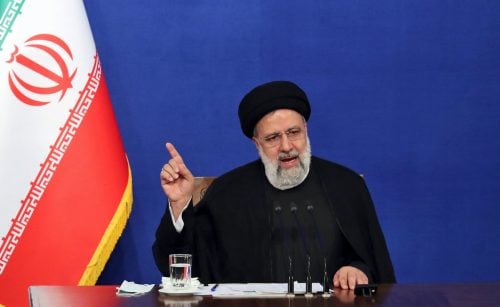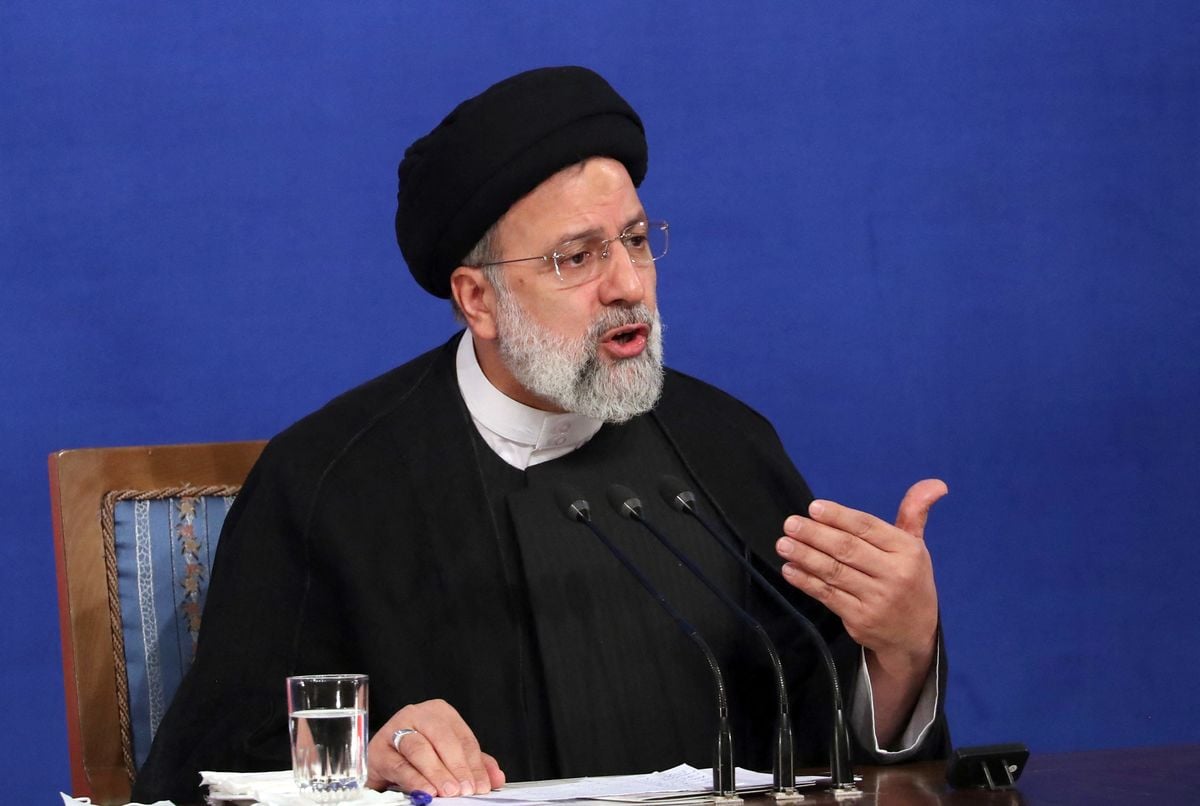The United States of America has tightened sanctions against Iran by listing the names of 9 Iranian, Singaporean and Malaysian companies involved in selling leading petrochemical products in Tehran.
On Thursday, February 9, 2023, the US Treasury announced imposing sanctions on 6 petrochemical companies based in Iran.
The sanctions also included the branches of the 6 Iranian companies, in addition to 3 companies in Malaysia and Singapore that promote Iranian products abroad on behalf of Trillance Petrochemical Company Limited, according to the text of the decision published on the ministry’s website.
By tightening the sanctions on Iran, the United States aims to besiege the smuggling of its oil abroad, by selling it in the form of petrochemical and oil products to global markets.
Nuclear program negotiations stalled
Sanctions on Iran coincide with the faltering of diplomatic efforts to revive the Iranian nuclear agreement concluded between Tehran and Washington in 2015, according to the specialized energy platform.
The relationship between Tehran and Washington has been strained over the past months, due to the United States’ support for the escalating protests against the Iranian government, which prompted Iranian President Ibrahim Raisi to threaten to freeze the file of nuclear negotiations in return.
The Treasury Department accused the nine companies of helping to produce, ship and sell a number of Iranian oil and petrochemical products to buyers in Asia.
Prosecuting aides to Iran
Treasury Undersecretary for Terrorism and Financial Intelligence Brian Nelson said Iran is increasingly turning to buyers in East Asia to sell its petrochemical products, in violation of US sanctions.
Nelson stressed that the United States will continue its course in pursuing those dealing with Iran, and those who deliberately facilitate its foreign trade, within the framework of plans to besiege the “illegal” revenues from the sale of Iranian oil and petroleum products, according to Reuters.
The Treasury Department estimates that Tehran has benefited from these operations at hundreds of millions of dollars, according to the specialized energy platform.
The Office of Foreign Assets Control at the US Treasury prepared a report on January 23, 2023, in which it monitored the names of these companies and details of their roles in helping Iran.
Executive Order No
The executive order for the new sanctions against Iranian, Singaporean and Malaysian companies carries No. (EO 13846), according to details seen by the specialized energy platform.
These sanctions are an extension of a previous decision dated November 17, 2022, accusing 13 companies operating in the United Arab Emirates and Hong Kong of facilitating the sale of Iranian petrochemical products to Asian buyers.
This decision alleges that these companies are acting on behalf of the following Iranian companies: Trillance Petrochemical, Persian Gulf Petrochemical Industry, and the National Iranian Oil Company, as well as Naftiran Intertrade Ltd.
This is not the first time that Iranian companies have been subjected to US sanctions. Sanctions were previously imposed on Trillance Petrochemicals in January 2020, on charges of facilitating the sale of petrochemical and oil products to foreign customers, including China.
previous penalties

The Iranian state petrochemical company was also subjected to sanctions on November 5, 2018, under Executive Order No. (13599), according to the specialized energy platform.
Tehran has a comparative competitive advantage in the field of petrochemical industries, as it occupies the second position in the list of the largest petrochemical producing countries in the Middle East after Saudi Arabia.
The Iranian Ministry of Oil says that Tehran possesses 25% of the petrochemical production capacity in the Middle East region, and 2.5% of the global production capacity, according to what was monitored by the specialized energy platform.
The Iranian economy has been subjected to prolonged sanctions since 2010 (i.e., almost 13 years ago) because of the nuclear program, and the pace of sanctions has increased more severely since 2018, immediately after former US President Donald Trump withdrew from the agreement concluded during the Obama era (2015).
Exports amounted to 9.6 billion dollars
Iran relies on the petrochemical industry to support the embattled Iranian economy, and plans to pump huge investments in the sector amounting to $93 billion by 2025, compared to about $83 billion in 2021 and $53 billion in 2019.
The sector currently includes 64 factories, with a production capacity of 90 million tons, which is expected to increase to 135 million tons with the entry into operation of 65 new projects by 2027.
Iran is looking forward to opening new international markets for leading petrochemical products, through the development of the local industry, thus increasing its competitiveness in the world.
Iranian petrochemical exports rose to $9.6 billion during the first half of the Iranian year, which begins on March 21 of each year, while total non-oil exports rose during the same period to $24.2 billion, according to the specialized energy platform.
Iran adopts a calendar that differs from the Gregorian calendar, as the Iranian year begins in spring, specifically on March 21, which means that the first half ends on September 20 (2022).
related topics..
Also read..

Leave a Reply